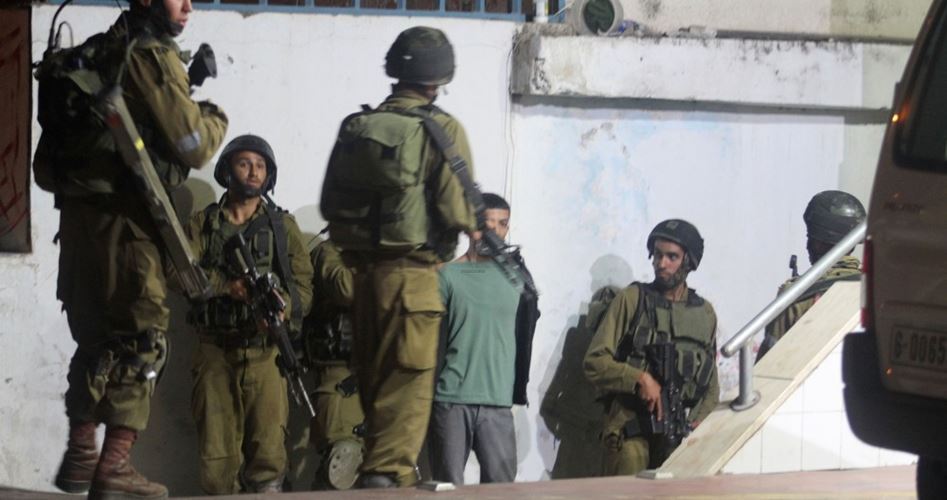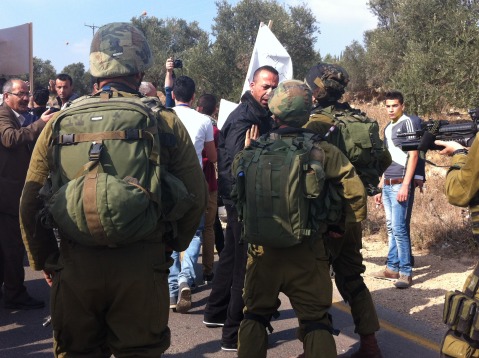Tag: Yabad
-
Young Palestinians being arrested by Israeli soldiers in Yabad
December 25th 2017 International Solidarity Movement, Nablus Team | Occupied Palestine | Yabad | North Palestine. Around Yabad there are two big Israeli settlements. In the last few weeks the repressive action by the Israeli army on Yabbad’s Palestinian people has escalated. Several Teenagers have been arrested, they were taken out from their homes on night raides. Raiding his house,…
-
Demonstration in Ya’bad is violently repressed by Israeli forces
21st November 2013 | International Solidarity Movement, Nablus Team | Ya’bad, Occupied Palestine Yesterday in the village of Ya’bad, a peaceful protest was violently repressed by Israeli forces through the use of tear gas canisters, stun grenades and rubber-coated steel bullets. Demonstrators were directly targeted by Israeli soldiers, five Palestinians were injured and two were…
-
Israel begins expanding settlement in Jenin
Saturday, October 16th, 2010 | Ma’an News Agency JENIN (Ma’an) — Israel began large-scale digging works on Saturday in preparation for the expansion of an illegal settlement in the northern West Bank district of Jenin. Residents of the Ya’bad village, on which the Shaqed settlement is built, said bulldozers entered on Saturday and began razing…


